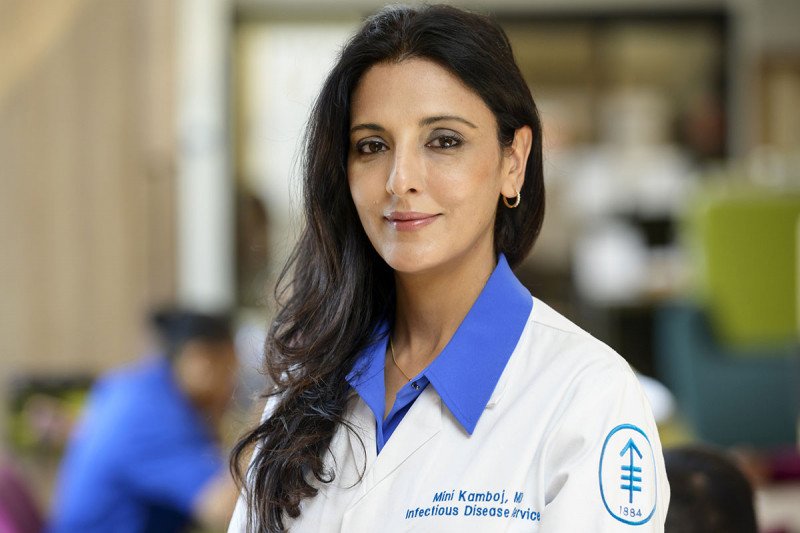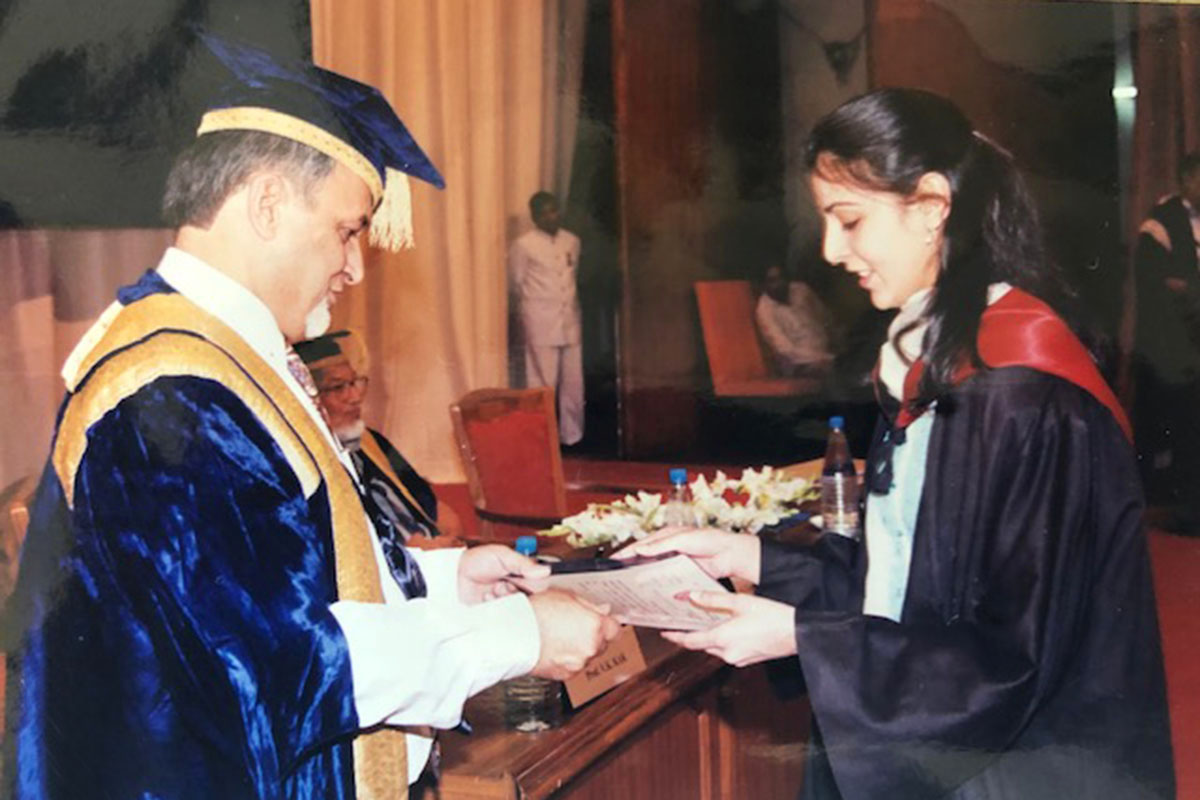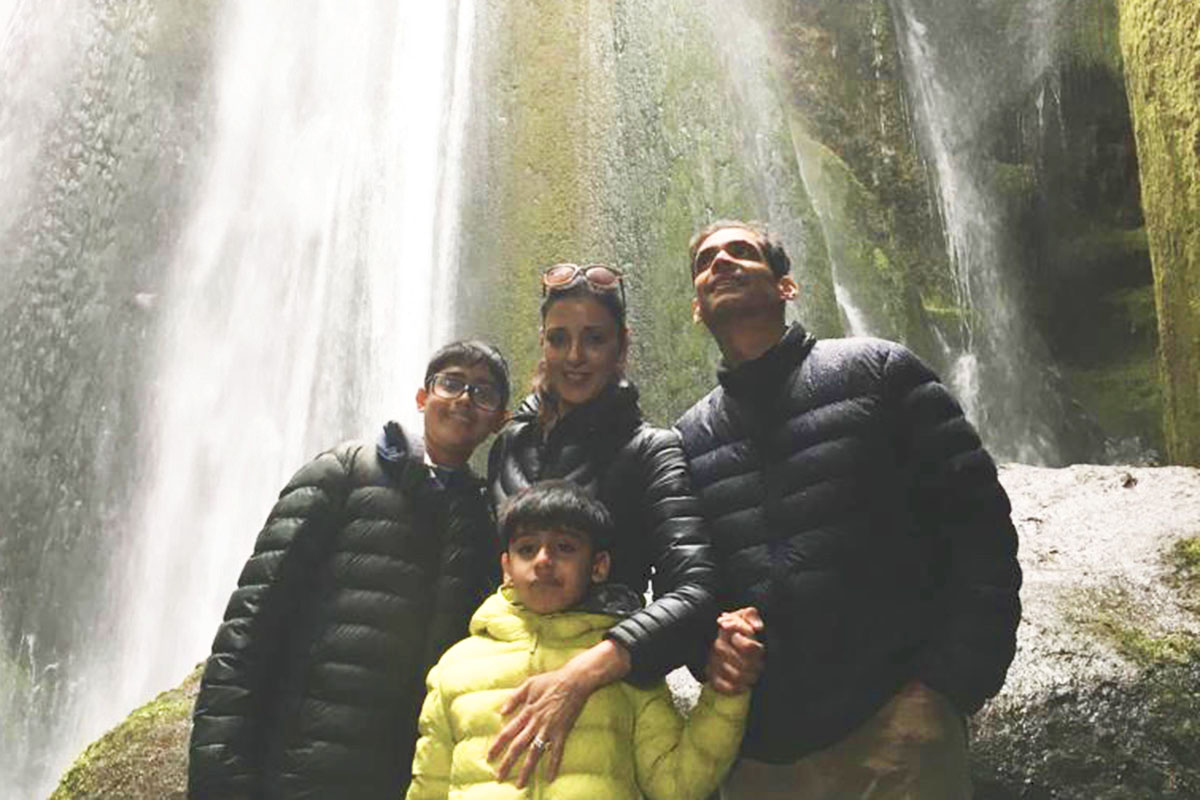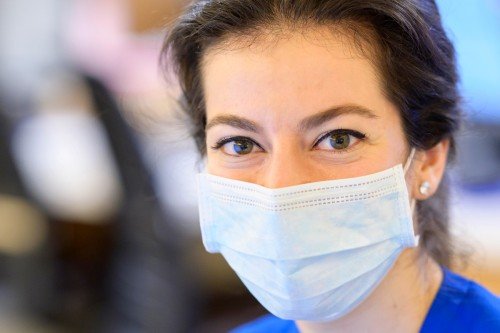
Anyone who has met Mini Kamboj knows that she is confident, gracious, and incredibly self-possessed. It’s exactly how she was raised to be.
Growing up in Punjab, a state in northern India, Dr. Kamboj thrived in a tight-knit Sikh family that celebrated female strength and ambition.
“My father raised my two older sisters and me to be strong, independent women,” Dr. Kamboj remembers. “He made us believe that we could do whatever we wanted to do. The only thing he demanded was that we never, ever have to depend on a man.”
In a household that put tremendous value on education, young Mini’s greatest passion was basketball, a sport she played all through school until she went to college, achieving state-level ranking.
“I was a tomboy,” she says. “If I wasn’t home, I was on the courts. Sports — and basketball in particular — was always my first love.”

Like both her sisters, Dr. Kamboj chose a career in medicine. After completing medical school at the Government Medical College in Chandigarh, her hometown, the lessons she had learned her whole life — to be bold and follow her dreams — led her away from India and to the United States.
“At the time, it was not common for a young Indian woman to travel abroad, alone, and pursue higher training,” she remembers. But her parents expected and encouraged it, and she left India to start her residency at Michigan State University in East Lansing, Michigan — two months before 9/11.
“It was a challenging period,” she says. Being a person of color and an immigrant in the immediate aftermath of the country’s worst terrorist attack left Dr. Kamboj feeling isolated during what she recalls as “a lonely time,” with her sense of purpose slipping for the first time.
But long hours, hard work, and explorations of Michigan’s natural beauty through occasional trips to places like Mackinac Island in Lake Huron made the years go by quickly. When it was time for a fellowship in infectious diseases, Dr. Kamboj set her sights on Memorial Sloan Kettering and soon found a new direction and a new appreciation for her adopted country.
“I didn’t get to know the real America or understand the American people and feel accepted as one of them until I came to New York and MSK,” she says.
A Place to Call Home
“I liked the people and the organizational culture at MSK,” says Dr. Kamboj. “Everyone was warm and welcoming. I instantly felt like one of their own, like part of the MSK family.”
After her fellowship, Dr. Kamboj became Associate Director of Infectious Diseases, serving in that role from 2007 to 2014, and gained invaluable “boots on the ground” experience.
In April 2009, the H1N1 virus — a new virus commonly known as “swine flu” — was first detected in the United States. By April 26, it had been declared a public health emergency by the World Health Organization and the Obama administration. It was Dr. Kamboj’s first experience with a pandemic.
“It taught me the significance of preparedness, planning, rapid diagnostic testing, and recognizing the human emotions that uncertainty causes,” she says. “I learned that offering comfort is an important part of pandemic planning and response.”
Those learnings stood her in good stead for what arrived in 2020.
COVID-19
Of the many key moments in MSK’s response to COVID-19, the one that looms largest for Dr. Kamboj, was the day she had to write an email to Lisa DeAngelis, Physician-in-Chief, and Ned Groves, Executive Vice President and Hospital Administrator, and recommend that MSK halt elective surgeries.
“It is devastating for cancer patients to interrupt their care, but we just didn’t know the vicious foe we were facing,” she says. “We stopped elective surgery in the second week of March and resumed in mid-April.”
Meeting the Challenge
When Dr. Kamboj reflects on 2020 and MSK’s response to COVID-19, she is struck most by how MSK staff came together, calling it “unparalleled.”
She points to the innumerable instances of staff stepping up to support and relieve their colleagues. She still marvels at the innovations that occurred during the year, everything from new tests to new forms of delivering cancer care, and employees’ determination to find, or create, desperately needed resources, including PPE.
“People would drop off N95 masks at my office, anonymously,” Dr. Kamboj remembers. “Everyone was trying — and still is. I see it now with MSK’s vaccine clinics and so many clinicians volunteering to help vaccinate. Everyone wants to contribute.”
For Dr. Kamboj, the virus has been humbling — and enlightening. “It has made me realize how vulnerable we are as humans,” she says. “At the same time, studying various aspects of a new disease and providing service to the institution and our patients have been very rewarding. The compassion that staff have shown for each other and the support my team and I have received from MSK colleagues has been overwhelming.”

Now, as COVID-19 cases decline and MSK patients and staff continue to be vaccinated against the virus, Dr. Kamboj looks forward to having more time with her family, especially her two sons, who are 14 and 8.
“I’ve been quite the absent mother for the last year,” she acknowledges. “When COVID started, my husband immediately became my biggest supporter. I told him, ‘I’m not going to be home much,’ and he said, ‘I’ve got everything covered — don’t worry!’”
Since New York City first went into lockdown, Dr. Kamboj’s husband has been able to work from home and care for their two boys. “He doesn’t know how to cook, but he certainly knows how to order in,” she says.
A Notable Woman of Science
When asked to identify a woman from history who impresses her, Dr. Kamboj chose Kalpana Chawla, an American astronaut and engineer who was born in India and became the first Indian-American woman to go to space. She first flew on the space shuttle Columbia in 1997 as a mission specialist and primary robotic arm operator. In 2003, she was one of the seven crew members who perished in the Columbia disaster when the spacecraft disintegrated during its re-entry into Earth’s atmosphere.
“She broke social norms — she came to the US for higher studies and proved that women from India could pursue their dreams,” says Dr. Kamboj. “She influenced my decision to come to the US on my own and inspired a generation of Indian women.”

